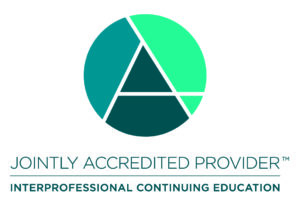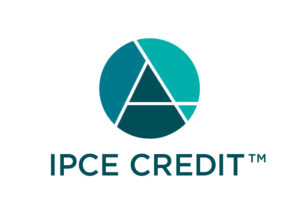Praxis Continuing Education & Training
ACT Basics
Matt Boone, LCSW
8 CE credits available
Please read the complete course information below prior to registering.
Target Audience:
This course is for mental health professionals, health professionals, and students with a beginner-intermediate background in this area. This includes counselors, nurses, physicians, psychologists, social workers, and anyone looking to learn acceptance and commitment therapy (ACT) to use with clients. This course is perfect for those who need a refresher on the main principles of ACT or want to start from the ground up.
Schedule: (8 hours total)
Week 1 (80 minutes)
Module 1 – What is ACT?: An experiential introduction to ACT; Matt’s personal story of pain and suffering, and how it led him to ACT work; Defining ACT and its aim.
Module 2 – Psychological Flexibility: An experiential introduction to values; Psychological flexibility and inflexibility; The ACT model (the hexaflex and inflexahex); How our efforts to avoid and control experience turn pain into suffering.
Week 2 (120 minutes)
Module 3 – Present Moment Awareness: Mindfulness exercises; Understanding present moment awareness and inflexible attention.
Module 4 – Acceptance: What acceptance means; The concepts of workable and unworkable behavior (vs right and wrong behavior); The ways in which we all use experiential avoidance to attempt to control difficult thoughts, feelings, and sensations; Creative hopelessness; Practical demonstration of an ACT classic exercise.
Module 5 – Defusion: Explanation of RFT, demonstrating how language makes cognitive fusion inevitable; Experiential exercise to understand cognitive fusion; How defusion works; Experiential exercise on defusion
Week 3 (120 minutes)
Module 6 – Values: What are values?; Experiential exercise on values; Practical demonstration of values work via teletherapy.
Module 7 – Self-as-Context: Experiential exercise; Didactic explanation of self-as-context; What attachment to the conceptualized self means.
Module 8 – Committed Action: Understanding what committed action means and how it relates to the rest of the hexaflex; “Bold move” exercise and discussion.
Week 4 (178 minutes)
Module 9 – The Therapeutic Relationship: Building a strong interrelationship between client and therapist; Experiential exercise; The difference between seeing a tough client as a math problem or as a sunset; Cultural humility; Relating to the client within their own individual life context.
Module 10 – ACT in Action: Demonstrations of Assessing psychological inflexibility; The butterfly exercise.
Overall Objectives:
At the conclusion of this course, participants will be able to:
1. Describe the limits of control and assess how ineffective control strategies contribute to psychopathology and general human suffering
2. Describe the psychological flexibility model that informs acceptance and commitment therapy (ACT)
3. Describe how to enlist acceptance and mindfulness processes to help clients let go of struggling and be more willing with painful private events (i.e., thoughts and feelings)
4. Distinguish between interventions designed to directly control thoughts and feelings and those targeted at becoming more mindful with thoughts and feelings
5. Identify how defusion and values processes help clients undermine the power of language to influence behavior and move in the direction of personally chosen values
6. Identify how to help clients contact the “observing self” and let go of limiting self-stories
7. Assess psychological inflexibility across six domains: experiential avoidance, fusion, inflexible attention, attachment to the conceptualized self, disconnection from values, and unworkable action
8. Discuss how to intervene using experiential methods to mobilize the six processes of psychological flexibility (acceptance, defusion, present moment awareness, self-as-context, values, and committed action) in their interactions with clients
9. Discuss how to adapt ACT to the client’s unique context
Grievance Procedures for CE Activities
Should a participant in the course be unsatisfied with the course, the participant should immediately contact our customer support team to file a grievance. Within five days, a customer support team member will contact the participant by email and/or phone and attempt to resolve the issue.
We will investigate and assess the issue from the perspective of the participant and every effort will be made to resolve the issue. If the issue is not resolved to the satisfaction of the participant, the participant will be offered a refund per the Refund and Cancellation Policy guidelines.
To file a grievance, please contact us at courses@praxiscet.com.
ADA Accommodations
To request accommodations for disabilities, please contact Praxis Continuing Education at courses@praxiscet.com.
Contact Information:
The ACT Basics team can be contacted at courses@praxiscet.com
Praxis Continuing Education
5674 Shattuck Avenue
Oakland, CA 94609 USA
CE Information:
This non-live online course is sponsored by Praxis Continuing Education and Training and is approved for 8 CE Hours by the organizations listed below. Praxis CET maintains responsibility for the program with the CE approvals outlined below:
Joint Accreditation: In support of improving patient care, Praxis Continuing Education and Training, Inc. is jointly accredited by the Accreditation Council for Continuing Medical Education (ACCME), the Accreditation Council for Pharmacy Education (ACPE), and the American Nurses Credentialing Center (ANCC),
Accreditation Council for Continuing Medical Education (ACCME), the Accreditation Council for Pharmacy Education (ACPE), and the American Nurses Credentialing Center (ANCC),
to provide continuing education for the healthcare team.
IPCE: This activity was planned by and for the healthcare team, and learners will receive 8  Interprofessional Continuing Education (IPCE) credits for learning and change.
Interprofessional Continuing Education (IPCE) credits for learning and change.
Nursing: Praxis Continuing Education and Training, Inc. designates this activity for a maximum of 8 ANCC contact hours.
Physicians: Praxis Continuing Education and Training, Inc. designates this enduring material activity for a maximum of 8 AMA PRA Category 1 Credits™. Physicians should claim only the credit commensurate with the extent of their participation in the activity.

Psychologists: Continuing Education (CE) credits for psychologists are provided through the co-sponsorship of the American Psychological Association (APA) Office of Continuing Education in Psychology (CEP). The APA CEP Office maintains responsibility for the content of the programs.
Social Workers: As a Jointly Accredited Organization, Praxis Continuing Education and Training, Inc. is approved to offer social work continuing education by the Association of Social Work Boards (ASWB) Approved Continuing Education (ACE) program. Organizations, not individual courses, are approved under this program. Regulatory boards are the final authority on courses accepted for continuing education credit. Social workers completing this course receive 8 clinical continuing education credits.
Drug and Alcohol Counselors: This course has been approved by Praxis Continuing Education and Training, Inc. as a NAADAC Approved Education Provider, for 8 CE hours. NAADAC Provider #165310, Praxis Continuing Education and Training, Inc. is responsible for all aspects of its programming.

National Counselors: Praxis Continuing Education and Training, Inc. has been approved by NBCC as an Approved Continuing Education Provider, ACEP No. 6759. Programs that do not qualify for NBCC credit are clearly identified. Praxis Continuing Education and Training, Inc. is solely responsible for all aspects of the programs.
NY Counselors: Praxis Continuing Education and Training, Inc. is recognized by the New York State Education Department's State Board for Mental Health Practitioners as an approved provider of continuing education for licensed mental health counselors #MHC-0198.
NY Social Workers: Praxis Continuing Education and Training, Inc. is recognized by the New York State Education Department's State Board for Social Work as an approved provider of continuing education for licensed social workers #SW-0467.
NY Psychologists: Praxis Continuing Education and Training, Inc. is recognized by the New York State Education Department's State Board for Psychology as an approved provider of continuing education for licensed psychologists #PSY-0002.
NOTE: Many state boards accept offerings accredited by national or other state organizations. If your state is not listed, please check with your professional licensing board to determine whether the accreditations listed are accepted.
CE Course Launch Date: 12/2021
Expiration Date/Next scheduled review date: 12/2024
Disclosure of Relevant Financial Relationships
Praxis Continuing Education and Training is responsible for the content, quality, and scientific integrity of all CE activities certified for credit. When an educational activity is offered for medical (CME), Nursing (ANCC), and/or Psychology (APA) continuing education credit, participants must be informed as to the source, amount, nature, and disposition of any funding used to support the activity, whether in the form of educational grants, cash contributions, or in-kind contributions. Individuals in a position to influence course content must also disclose whether they have one or more relevant financial relationships with ineligible companies.
We define ineligible companies as those whose primary business is producing, marketing, selling, re-selling, or distributing healthcare products used by or on patients. There is no minimum financial threshold; individuals must disclose all financial relationships, regardless of the amount, with ineligible companies. We ask that disclosures be made regardless of whether the individual views the financial relationships as relevant to the education. For more information on the Standards for Integrity and Independence in Accredited Continuing Education, please visit accme.org/standards.
All those in a position to control the content of an education activity are asked to disclose any relevant financial relationships they have with any ineligible companies.
There is no commercial support for this activity.
None of the planners or presenters for this educational activity have relevant financial relationship(s) to disclose with ineligible companies whose primary business is producing, marketing, selling, re-selling, or distributing healthcare products used by or on patients.
How to Obtain Your CE Certificate:
After completing the course, please follow these steps to access your course evaluation, post-test (when applicable), and CE certificate. To receive credit, you must complete the course in full, pass the post-tests with a cumulative average score of 80% or higher, and complete the course evaluation. No partial credit will be awarded. Please read through all of the instructions below before proceeding.
- Once you have completed all the modules and have taken the post-test for each module, go to the “Evaluation” tab on the course menu.
- If you have passed the post-tests with a cumulative average score of 80% or higher, the course feedback evaluation will be made available to you on the Evaluation page. You will be allowed to retake each post-test only once if you do not pass with an 80% or higher average.
- After submitting the feedback evaluation, a button will appear that will allow you to download your certificate.
We encourage members to submit the feedback evaluation within 6 months of course completion to earn their CE certificate.
Technical Requirements:
In order to complete this course, participants will need:
- A computer with a monitor, keyboard, and a mouse or a mobile device/tablet
- Speakers/headphones: either built‐in to your computer/device or external (plugged into your computer)
- An internet connection, either wired or wireless. A minimum connection speed of 3 megabits is required to stream clear, standard definition video.
- The course is supported on most up-to-date internet browsers (Google Chrome, Safari, Firefox, Microsoft Edge, Brave, etc.)
- A PDF viewer such as Adobe Acrobat Reader
- An email address
- [Optional] A mixed media player (such as iTunes/Windows Media Player) to listen to downloadable audio exercises. These are also available within the members area so this is not a strict requirement.
- [Optional] A printer or access to a printer (to print any of the PDFs, if desired)
- [Optional] A Facebook account for access to the ACT Basics community group
References:
1) Gloster, A. T., Walder, N., Levin, M. E., Twohig, M. P., & Karekla, M. (2020). The empirical status of acceptance and commitment therapy: A review of meta-analyses. Journal of Contextual Behavioral Science, 18, 181–192. https://doi.org/10.1016/j.jcbs.2020.09.009
2) Zhang, C. Q., Leeming, E., Smith, P., Chung, P. K., Hagger, M. S., & Hayes, S. C. (2018). Acceptance and Commitment Therapy for Health Behavior Change: A Contextually-Driven Approach. Frontiers in Psychology, 8. https://doi.org/10.3389/fpsyg.2017.02350
3) Gloster, A. T., Klotsche, J., Ciarrochi, J., Eifert, G., Sonntag, R., Wittchen, H. U., & Hoyer, J. (2017). Increasing valued behaviors precedes reduction in suffering: Findings from a randomized controlled trial using ACT. Behaviour Research and Therapy, 91, 64–71. https://doi.org/10.1016/j.brat.2017.01.013